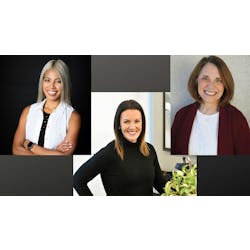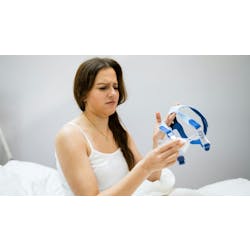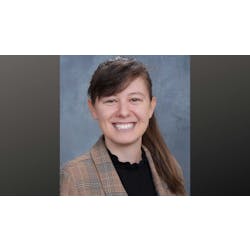By Christine Nathe, RDH, MS
The various roles of dental hygienists are frequently discussed. Sometimes a hygienist practices many roles (or careers) simultaneously, but most of the time he or she will fulfill the role of clinician and educator. Hygienists are increasingly expanding their career options by working in other areas, such as becoming entrepreneurs or working in corporate settings. This paradigm of roles actually is an excellent way to depict the career opportunities of a dental hygienist.
Public health is the integral part of all career options since ultimately all career options should help improve the public's health. As a discipline, dental hygiene is foremost concerned with the advancement of oral health and the overall health of the public, which makes it an integral part of public health science and practice.
Further, dental hygienists should have three overlapping and integrated skill sets to function well in all of these careers and settings. These skills should be taught in dental hygiene education and further developed with experience, collegial relationships, continuing education, and lifelong learning.
All too often the importance of these clinical skills is diminished or devalued. The dental hygiene profession would be well served by continuing to focus on the attainment of psychomotor and clinical decision-making skills for dental hygienists.
What would the practice of surgery be without quality clinical skills? Who would choose a surgeon who did not have superb accuracy when it comes to psychomotor skills? The attainment of psychomotor skills should never be undervalued, whether for surgical or dental hygiene training.
Moreover, just as important as the psychomotor skills for a surgeon are the decision-making skills to make appropriate incisions, manipulate the instruments, and accurately assess the health of patients. These skills should be developed and stay prominent within the science of dental hygiene.
Secondly, a dental hygienist should understand public health science and practice not only as an additional course in school, but as an integrated component within the curriculum. Education should focus on this skill set because it is the science that, put into practice, can ultimately lead to programs and initiatives that improve public health. This public health science was inherent in the profession from the beginning, as Dr. Fones' vision promoted the long-term abilities of dental hygienists to bring prevention to the masses. He did this by positioning dental hygiene within public health initiatives from the beginning. Appropriately, public health science was an inherent part of the initial curriculum.
The third integral skill of a dental hygienist is achieving a scholarly identity. This is absolutely mandatory for the advancement of dental hygiene within society. Without scholars who understand the science, disseminate the knowledge, and advocate for dental hygiene within the masses, dental hygiene as a profession will not advance. Although more advanced scholars should be concerned with conducting research, entry-level hygienists need to thoroughly understand the science that they apply daily. They also need to be able to promote that same science daily. The importance of communication and influence within social systems should never be underestimated. These qualities are inherent in a dental hygiene scholar.
Dental hygiene must ensure that education focuses on these three skill sets for the dental hygienists of the future. Practicing hygienists should focus on becoming well trained in all of these skill sets to help propel dental hygiene to the next level, which should stay focused on improving the public's overall health. RDH
CHRISTINE NATHE, RDH, MS, is director at the University of New Mexico, Division of Dental Hygiene, in Albuquerque, N.M. She is also the author of "Dental Public Health Research" (www.pearsonhighered.com/educator), which is in its fourth edition with Pearson. She can be reached at [email protected] or (505) 272-8147.





